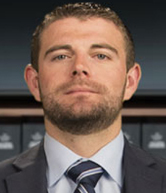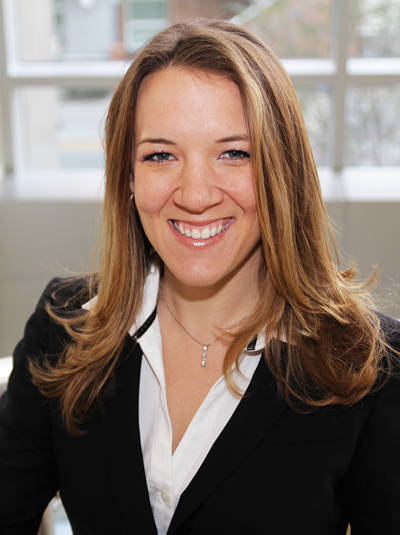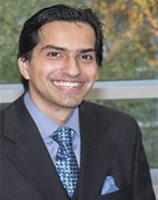Legal Writing I Workbook - Plagiarism Policy Statement
PLAGIARISM AND UNAUTHORIZED ASSISTANCE
You will be violating the ethical standards of Thomas Jefferson School of Law if you do either of the following:
1. turn in any work, graded or ungraded, that is plagiarized; or
2. give or receive any unauthorized assistance.
I. PLAGIARISM
Plagiarism is defined as follows:
Plagiarism is a violation of the ethical standards of Thomas Jefferson School of Law. According to Webster's Ninth New Collegiate Dictionary, plagiarism is (1) "to steal and pass off (the ideas or words of another) as one's own" or (2) to "use (a created production) without crediting the source." All written assignments in this class must be the product of your own research, analysis, writing, and editing. You must not steal and pass off as your own the work of any other person. You will, of course, use cases and statutes as authority for your analysis. You must credit those sources.
Obviously, copying another student's paper is plagiarism because it is stealing and passing off the ideas and words of another person as your own ideas and words. Another obvious example of plagiarism is to use ideas or words or both from a statute, case, or other authority without crediting the source.
You must use a citation to the source for both precise quotations and paraphrases. Whenever you use the precise wording of a statute, case, or other authority, use quotation marks around the words quoted and credit the source. When you paraphrase a statute, case, or other authority, credit the source. Changing one or two words within a sentence written by another does not eliminate the need to use quotation marks or the need to provide a citation. Err on the side of giving credit.
A. PRIMARY AUTHORITY
Consider the following ways that a student might use this excerpt from a case.
SOURCE:
[T]he fireman's rule is based on a principle as fundamental to our law today as it was centuries ago. The principle is not unique to landowner cases but is applicable to our entire system of justice--one who has knowingly and voluntarily confronted a hazard cannot recover for injuries sustained thereby. We have consistently applied this concept in our recent pronouncements in other cases of basic tort doctrine. The principle denying recovery to those voluntarily undertaking the hazard causing injury is fundamental in a number of doctrines, including nullification of the duty of care, satisfaction of the duty to warn because the hazard is known, contributory negligence, and assumption of risk, as well as in the fireman's rule. It is unnecessary to attempt to separate the legal theories or to catalog their limitations. The rule finds its clearest application in situations like that before us--a person who, fully aware of the hazard created by the defendant's negligence, voluntarily confronts the risk for compensation.
Walters v. Sloan, 20 Cal. 3d 199, 204 (1977).
VERSION A APPEARING IN STUDENT'S PAPER:
The fireman's rule is based on a fundamental principle, a principle that is not unique to landowner cases but applies to our entire system of justice: One who has knowingly and voluntarily confronted a hazard cannot recover for injuries sustained in confronting the hazard. Courts have consistently applied this concept. The principle has been used to nullify the duty of care and to satisfy the duty to warn because the hazard is known. It also has been used in the doctrines of contributory negligence, assumption of risk, and the fireman's rule. The rule finds its clearest application in situations where a person who, fully aware of the hazard created by the defendant's negligence, voluntarily confronts the risk for compensation.
QUESTION: Is version A plagiarism?
COMMENT: Clearly plagiarism. Although the ideas conveyed may not be unique to Walters, the stolen phrases are. It makes no difference that some parts of the case are paraphrased and some parts are precisely quoted. Both paraphrases and precise quotations should be followed by citations.
QUESTION: Does the interweaving of the writer's own words with the source's words render the writer innocent of plagiarism?
COMMENT: No. Using some of the writer's words simply makes portions of Version A a paraphrase; both the precise quotations and the paraphrases should be attributed to their source.
VERSION B APPEARING IN STUDENT'S PAPER:
The fireman's rule is based on a fundamental principle that is not unique to landowner cases but applies to the entire system of justice. As the court in Walters v. Sloan, 20 Cal. 3d 199 (1977) points out, someone who has knowingly and voluntarily confronted a hazard cannot recover for injuries sustained in confronting the hazard. Courts have consistently applied this concept. The principle has been used to nullify the duty of care and to satisfy the duty to warn because the hazard is known as well as in the doctrines of contributory negligence, assumption of risk, and the fireman's rule. The rule finds its clearest application in situations where a person who, fully aware of the hazard created by the defendant's negligence, voluntarily confronts the risk for compensation.
QUESTION: Now the source is cited. Is version B plagiarism?
COMMENT: Still plagiarism. The correct citation of Walters does not excuse the failure to cite the case in other parts of the passage where the writer has taken some of the court's words and ideas and presented them as the writer's.
VERSION C APPEARING IN STUDENT'S PAPER:
Many California courts have precluded recovery by plaintiffs who were injured by a risk that the plaintiff knew about and disregarded. See, e.g., Walters v. Sloan, 20 Cal. 3d 199, 204 (1977). This principle has been used to nullify the duty of care and to satisfy the duty to warn because the hazard is known as well as to justify the defenses of contributory negligence and assumption of risk. Id. "The rule finds its clearest application in situations where a person who, fully aware of the hazard created by the defendant's negligence, voluntarily confronts the risk for compensation." Id.
QUESTION: Is Version C plagiarism?
COMMENT: No plagiarism. The writer's conclusion has been influenced by the Walters opinion, but the writer has not tried to pass off the court's conclusion as the writer's conclusion. The source for each sentence is properly acknowledged.
B. SECONDARY AUTHORITY AND DOCUMENTS ACCESSED THROUGH ELECTRONIC SOURCES
The same rules of attribution apply to secondary sources such as law review articles. What some students fail to realize is that these rules apply with equal force to both primary and secondary sources that are accessed electronically, such as documents found on websites and on Westlaw and Lexis. This principle runs counter to common notions of cyberspace as being a domain where information flows freely and belongs to all. Nonetheless, whenever you quote directly from or paraphrase the words of another author, you must cite to that author's work, whether that work appears in print or online. In other words, you may not cut and paste material found in an online document unless you quote and cite the source correctly.
When citing to primary or secondary authority that appears both in print and online, you generally should cite the print source because it is more permanent. For primary authority (mostly cases) that appears only online, proper citation formats are set forth in Rules 12.12 and 12.15 of the ALWD Citation Manual. The ALWD Citation Manual also provides proper citation formats for secondary sources that appear only online. Particular attention should be paid to Chapters 38, 39, and 40, which cover proper citation formats for documents accessed through electronic sources. For example, citation formats for sources on the World Wide Web almost always include the full Uniform Resource Locator (URL) of the document cited.
EXAMPLE: Sierra Club, Stop Sprawl: Transportation Issues, http://www.sierraclub.org/sprawl/transportation/ (accessed June 6, 2002).
II. UNAUTHORIZED ASSISTANCE
Giving or receiving unauthorized assistance also is an ethical violation. Students often are unclear about what constitutes "unauthorized" assistance. The rule for your legal writing classes is simple: All assignments in this class must be the product of your own research, analysis, writing, and editing.
Students MAY NOT receive assistance on their graded assignments from any person working in the Thomas Jefferson Writing Center. This prohibition includes, but is not limited to, assistance with analysis, organization, grammar, spelling, research or citation format for any outline, draft or final version of any document that will be graded. If you are referred to the Writing Center for tutoring in any of these areas, you may only work on problems or exercises that will not be evaluated as part of your course grade.
The following examples are offered to help students determine what assistance they may not ethically give or receive.
A. ANALYSIS, WRITING, AND EDITING:
All analysis, writing, and editing must be your own. "Analysis" includes thinking, evaluating, and concluding. "Writing and editing" includes outlining, drafting, revising, editing, and proofreading. Although you may discuss your written assignments with others, the analysis that is reflected in every step of your writing process must be your own. No other person may have any part in writing and editing your papers, including proofreading.
The only person who may review your written work for analysis, organization, and writing is your professor. Unless you are given specific instructions by your professor, you may not share any of your written work with another student. You may not ask for or obtain another person's work on similar law school assignments unless such papers have been placed on library reserve or are within sources to which the public has access. You may not give your written work to another person for review until the course is completed or until your professor has placed on library reserve sample answers for that particular assignment.
If you do not type your own papers, your typist must be instructed to type your papers exactly as written or dictated. If your typist is your secretary and is accustomed to correcting your grammar, spelling, and punctuation, your typist should be instructed NOT to make corrections for your law school papers.
You may use software to check your spelling and grammar. You may use your papers as writing samples for job applications.
QUESTION: A student says, "Jenny and I discussed the issue of negligence per se, and we disagree about whether the statute was intended to include the conduct of the defendant. Is it OK if our papers come to different conclusions?" Have the students committed an ethical violation?
COMMENT: No. An ethical violation would have been committed, however, if one student simply took the conclusion of another student and used that in the first student's written work rather than doing independent analysis.
QUESTION: A student says, "I sent this draft to my brother-in-law Mort, an attorney, and he read it over. He says my analysis is brilliant and I deserve a higher grade." Has the student committed an ethical violation?
COMMENT: Yes. The student has committed an ethical violation by receiving unauthorized assistance. Mort has given the student substantive commentary on an assignment before the course was completed.
QUESTION: Another student says, "Boy, I'm going to yell at my husband. Look at all the typos he missed." Has the student committed an ethical violation?
COMMENT: Yes. The student has committed an ethical violation by having someone else proofread her paper.
B. RESEARCH:
All research done for this course must be your own work. Unless you are given specific instructions by your professor, you may not share the results of your research with another student. You may not ask for or obtain the results of another person's research.
You may discuss the research process with your fellow students, and you may ask librarians, library assistants, or teaching assistants such questions as where particular library resources are located and how to use those resources. You may not ask them to find the answers to specific legal questions or to find specific cases or statutes for you.
The above descriptions are examples only; they are not a full list of all instances of plagiarism or unauthorized assistance. If you are ever unsure whether something constitutes unauthorized assistance or plagiarism, ask your professor before engaging in the behavior. It would be better NOT to engage in behavior which might be acceptable than to engage in behavior which is NOT acceptable.
Download Plagiarism Policy





